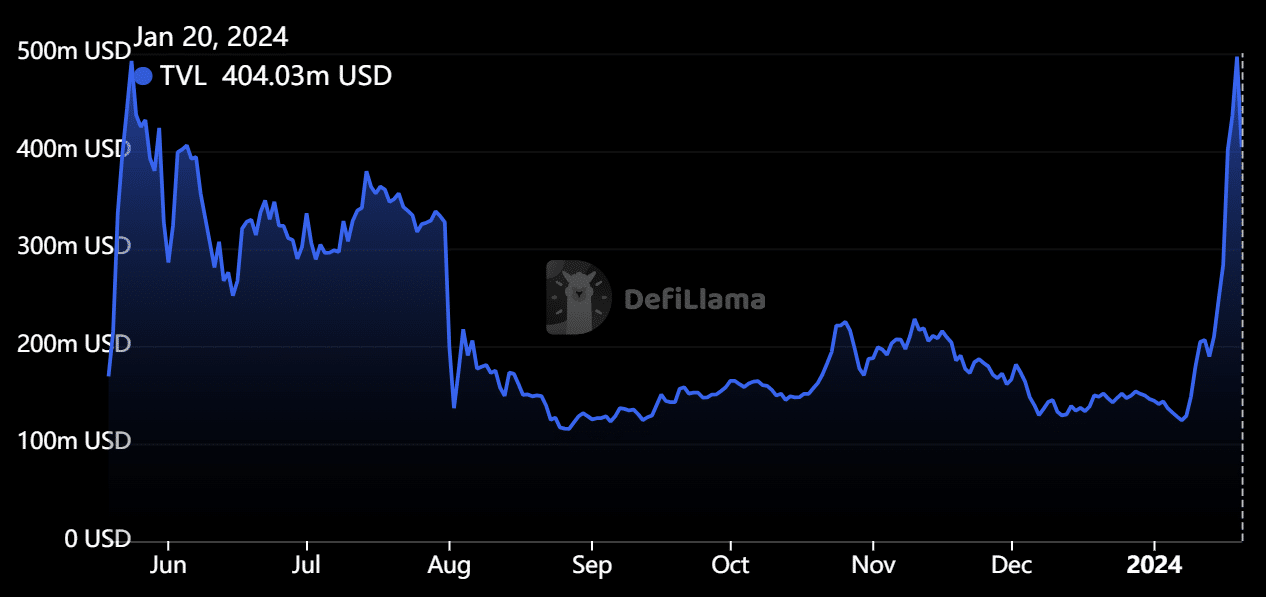Wednesday’s drop in the price of bitcoin was sudden, unexpected and severe — about 10%, followed by an equally sharp 5% bounce back. Passage, a new dapp launching today on Ethereum rollup Arbitrum, aims to help traders bet on volatility in a new, gamified way.
Passage is a market for trading volatility simply, without relying on more complex options strategies. It’s essentially a prediction market for price ranges, offering short duration — initially two days — ETH-denominated contracts.
The concept is to allow for trading volatility as intuitively as a perpetual future (perp), but the product can also serve as an effective complement to perp trading, according to co-founder Pelli Wang.
Instead of betting on a price direction, a trader can specify a range and only bet on whether the price will “break out” or “stay in” that range.
Wednesday’s volatility resulted in over $600 million in liquidations, derivatives data shows.
“Had you been 10x [a ten-times leveraged position] on a perp, and you were long bitcoin, you would have gotten potentially liquidated if you were wrong, because no one really would have thought that there was going to be a short today,” Wang told Blockworks.
“And so that’s sort of the benefit of using a ‘breakout’ where you don’t necessarily want to predict if it’s going long or short, just that it’s extremely volatile,” she said.
The product from Panama-incorporated Bracket Labs, which also announced a $2 million seed round fundraise Thursday, has been in development for over a year and a half, and was live on an Arbitrum testnet since mid-October 2023.
The road to Passage
Wang and co-founder Mike Wasyl began working together in business development roles at Consensys in 2018, before leaving to found Deer Creek, a Web3-focused advisory firm, in 2019. They teamed up with technical co-founder Jason Glazier to form Bracket Labs in March 2022.
The trio began looking at how to improve crypto-native derivatives after being unimpressed by existing solutions such as options vaults.
“They were interesting but extremely opaque and you couldn’t really do much with them — you could buy it and that’s it,” Wasyl told Blockworks. “We started adapting our model, which reworks options to work a little better on-chain.”
The team settled on what they call an “adaptive pricing model” that’s percentage-based, and applied it to range-bound volatility trading.
“We think that’s a great tool for traders to use if they’re not sure what direction the market is going, but still want to take a position with some leverage on,” he said.
It’s proof of concept, but one that could eventually be used on non-crypto native assets such as tokenized commodities.
Passage is targeting professional and retail traders alike. The former might find it a complement to their existing futures or options strategies.
“But then the retail person, who’s just kind of playing around, can actually for the first time get exposure to long or short volatility without having to build anything — which is really cool because all you have to do is buy, and then you just sit on it, and it automatically settles,” Wasyl said.
Making on-chain derivatives work better
Unlike traditional options contracts, “passages” do not have a common expiry date and time. Instead, they are always exactly two days.
In the case of a break-out, the contract will automatically claim the fraction of that period that the asset’s spot price remains in the specified price range, according to its documentation.
The default price range, which references a Chainlink oracle, is adjusted dynamically using a weighted look-back period over the prior 3 days.
Ensuring enough liquidity in on-chain derivatives market is an unresolved problem in DeFi.
With Passage, trades happen peer-to-peer, all on-chain. If no orders in the book match after a couple of minutes, an “auto buyer” vault can step in to provide liquidity based on preset risk parameters.
“There is a kind of dual structure to the order book that I think will improve the user performance,” Wasyl said.
Read more: Aevo mainnet launch opens decentralized futures, options
The auto buyer should help in the initial phase of building on-chain liquidity in the order book. Wasyl also thinks dynamically adjusting price range widths could provide a new DeFi primitive for others to build upon, such as a volatility index.
“There’s lots of different creative ways you can use this product in all markets,” Wasyl said.
Sourced from cryptonews.net.










